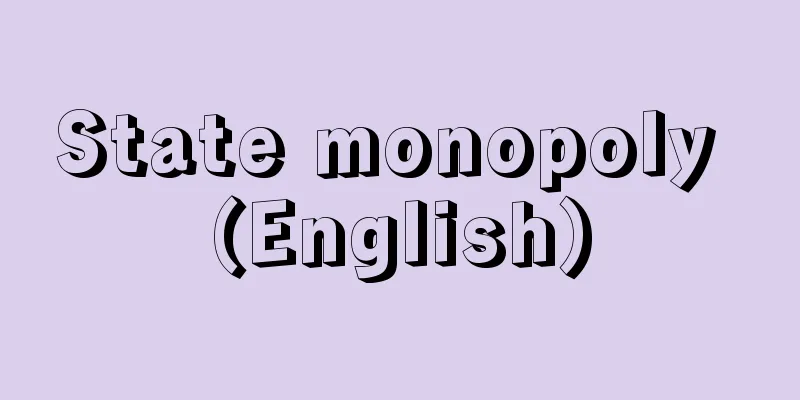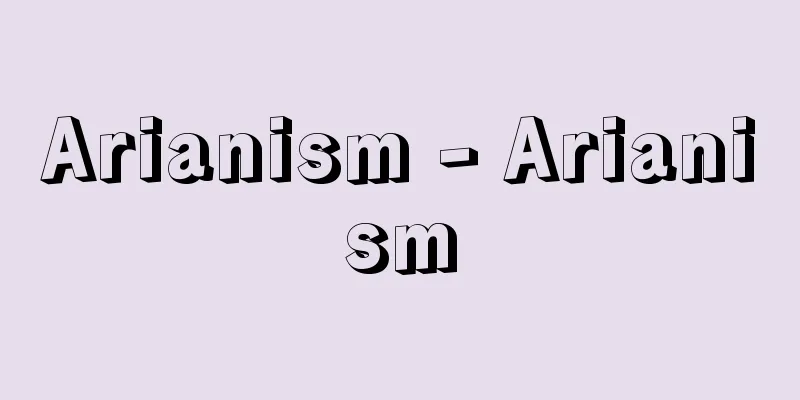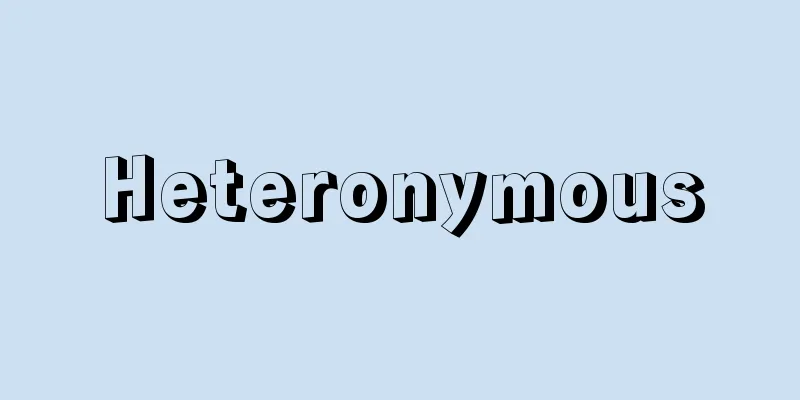State monopoly (English)

|
It refers to the exclusive manufacture and sale of a specific good by the state. Depending on their purpose, monopolies can be divided into administrative monopolies (public interest monopolies) and fiscal monopolies. Administrative monopolies are implemented for the purpose of social policy, industrial protection, maintenance of public order, public health, etc., and examples of these are the monopolies of gunpowder, narcotics, and alcohol. In contrast, fiscal monopolies are aimed at obtaining fiscal revenue, and examples of these are the monopolies of salt, tobacco, tea, and cotton. In this case, when citizens purchase the goods, they have no choice but to pay the price set by the state, so it is essentially the same as being subject to a consumption tax. The origin of monopolies is said to date back to the monopoly of papyrus in ancient Egypt. In China, in 119 BC under Emperor Wu of Han, the salt and iron industries, which were thriving among the private sector at the time and occupied a central position in handicraft industries, were placed under the authoritative control of the state, and their commercial profits were used as a source of national finances. Later, in the mid-8th century during the Tang Dynasty, the Monopoly Law was enacted. This Monopoly Law, along with the two tax laws, formed the financial foundation of the Tang Dynasty, and the income from the salt monopoly based on this law eventually came to account for half of the national revenue. Around the same time, a tea monopoly was also implemented, and these monopoly systems were inherited by the following Song Dynasty. Tobacco monopolies were implemented in America during the colonial period by the British, and were also subject to monopolies in Germany during the Prussian period. Furthermore, in the early 19th century, Muhammad Ali of Egypt implemented a cotton monopoly. Modern monopolies, with a few exceptions such as the French tobacco monopoly that began in 1810 and the Austrian tobacco monopoly that began in 1834, came into existence between the late 19th century and the early 20th century. During this period, national expenses expanded significantly in each country, and efforts were made to increase tax revenues in order to deal with this, with taxes on various products including luxury goods being imposed in the form of monopolies. [Masatoshi Hayashi] Japanese MonopolyIn Japan during the Edo period, the shogunate had monopolies on many products, including iron, copper, ginseng, raw silk, tea, and tobacco, and various feudal domains also increased their financial revenue by monopolizing the sale of local specialties such as paper, lacquer, and wax. However, it was not until the 1890s that the modern monopoly system was implemented, and it targeted tobacco, salt, alcohol, and other products. Tobacco was the first product to be monopolized. In order to cope with the increased financial needs after the Sino-Japanese War, a monopoly on tobacco leaves was implemented in 1898 (Meiji 31), and in 1904 the scope of the monopoly was expanded to include the manufacture and sale of tobacco products. The tobacco monopoly was initially managed by the Ministry of Finance under the control of the Monopoly Bureau, but after the Japan Tobacco and Salt Public Corporation was established in June 1949 (Showa 24) after the Second World War, it was taken over by the corporation. However, following the passage of the five monopoly reform laws, including the Tobacco Business Law, which were centered on the liberalization of tobacco imports and the privatization of the Japan Tobacco and Salt Public Corporation in August 1984, the tobacco monopoly system was abolished at the end of March 1985, and the Japan Tobacco and Salt Public Corporation was relaunched as Japan Tobacco Inc. in April of the same year. The monopoly on salt was started in 1905 (Meiji 38) with the aim of raising funds for the Russo-Japanese War. However, because salt is a daily necessity, efforts were made to maintain the price, and it gradually became an administrative monopoly. Like tobacco, salt was transferred from the control of the Ministry of Finance's Monopoly Bureau to the Japan Tobacco and Salt Public Corporation in 1949 after the Second World War, but with the privatization of the public corporation in April 1985, the monopoly was entrusted to Japan Tobacco Inc. Furthermore, in response to requests for deregulation, the Salt Business Law came into effect on April 1, 1997 (Heisei 9). This law provides for the abolition of the Salt Monopoly Law, i.e., the abolition of the salt monopoly system, and requires the Minister of Finance to formulate and publish a forecast of salt supply and demand in order to take necessary measures accordingly. In addition, salt manufacturers, designated salt dealers, and salt wholesalers must be registered with the Minister of Finance. The Salt Industry Centre, designated by the Minister of Finance, is tasked with the duties of supplying salt for domestic use, stockpiling salt, and providing advice and various assistance to salt manufacturers and dealers to promote the efficiency of the salt industry. The alcohol monopoly began in 1937 (Showa 12) and was under the control of the Ministry of Finance's Monopoly Bureau along with tobacco and salt, but in 1942 it came under the jurisdiction of the Ministry of Commerce and Industry, and in 1947 the "Alcohol Monopoly Business Special Account" was established, and the business was transferred to the New Energy Development Organization (reorganized as the New Energy and Industrial Technology Development Organization in 1982). This business was initially launched as part of the national fuel self-sufficiency policy under the wartime regime, but after the war its main objectives were to contribute to industrial development by steadily supplying high-quality alcohol at low prices, and to prevent the illegal use of alcohol as a beverage and secure liquor taxes. Then, with the enforcement of the Alcohol Business Act in April 2001 (Heisei 13), the Alcohol Monopoly Act and the Alcohol Monopoly Business Special Account Act were abolished, and the manufacture, sale, and use of alcohol became subject to a license system. In addition, a camphor monopoly was implemented from 1903 (Meiji 36) to 1964 (Showa 39) for the purpose of protecting the industry, and an oil monopoly was also implemented as part of the national fuel self-sufficiency policy during the war from 1943 to 1945. As for opium, although the word "monopoly" is not used in the law, the state's monopoly was established by the "Opium Law" (Law No. 71 of 1954). Since monopolies are monopolies, they can achieve the social policy objective of suppressing consumption by setting high prices, and they can also earn monopoly profits. The monopoly profits earned by the state from monopolies constituted part of national revenues in the form of monopoly taxes from the Japan Tobacco and Salt Public Corporation and the Special Account for the Alcohol Monopoly, but the amount of monopoly taxes also decreased significantly with the abolition of the tobacco and salt monopolies. The ratio of monopoly taxes to total general account revenues fell from 20.06% in fiscal 1948, the highest level since the war, to 7.50% in fiscal 1960, 3.24% in fiscal 1970, 1.84% in fiscal 1980, 0.02% in fiscal 1990 (Heisei 2), and was zero in 2001. With the privatization of the Tobacco and Salt Public Corporation in 1985 (Showa 60), the tax on tobacco was changed to tobacco consumption tax, and then to tobacco tax in 1989 (Heisei 1). [Masatoshi Hayashi] "The History of the Tobacco Monopoly, 4 volumes compiled by the Japan Tobacco and Salt Public Corporation Monopoly History Editorial Office (1963-64, Japan Tobacco and Salt Public Corporation)" ▽ "The Development Structure of the Tobacco Monopoly Business, by Kaino Masao (1986, Meibunshobo)" ▽ "Japan's Monopoly Policy, by Fujimoto Yasuta (1990, Taga Publishing)" [Reference items] | | | |Source: Shogakukan Encyclopedia Nipponica About Encyclopedia Nipponica Information | Legend |
|
国家による特定財の独占的製造および販売をいう。専売は、その目的によって行政専売(公益専売)と財政専売とに分けることができる。行政専売は、社会政策、産業保護、治安の維持、公衆衛生などを目的に実施されるものであり、火薬、麻薬、アルコールなどの専売がこれにあたる。これに対して財政専売は、財政収入を獲得することを目的とするもので、塩、たばこ、茶、綿花などの専売がこれにあたる。この場合には、国民がその物品を購入するに際しては、国が定めた価格に従って対価を支払わざるをえないので、実質的には消費税を課されたのと同じになる。 専売の起源は、古代エジプトのパピルスの専売にまでさかのぼれるとされる。中国では、漢の武帝の紀元前119年に、当時民間で盛んに行われていた手工業の中心的地位を占める塩業と製鉄業を国家の権力的管理下に移し、その商業的収益を国家財政の財源とした。その後、唐時代の8世紀なかばには専売法が制定された。この専売法は、両税法とともに、唐朝の財政的基盤をなすもので、同法に基づく塩の専売収入は、やがて国家歳入の半分を占めるようになった。同じころには茶の専売も実施され、これらの専売制度は次の宋(そう)代にも受け継がれていった。たばこの専売は、イギリスによって植民地時代のアメリカで実施され、プロシア時代のドイツにおいても専売の対象とされていた。さらに19世紀初頭には、エジプトのムハンマド・アリーによって綿花の専売が実施されている。 近代的な専売は、1810年に始まるフランスのたばこの専売や、1834年からのオーストリアのたばこの専売などの少数の例外を除けば、19世紀末葉から20世紀初頭にかけて実施されるに至ったものである。この時期には、各国とも国家経費の膨張が著しく、それに対処するため税収の増大が図られ、嗜好(しこう)品をはじめとする各種商品に対する課税が、専売という形式で実施されたからである。 [林 正寿] 日本の専売日本においても、江戸時代には幕府が鉄、銅、薬用ニンジン、生糸、茶、たばこなど多くの商品の専売を行い、また諸藩でも、紙、漆、蝋(ろう)など領内の特産物の専売を実施して財政収入を図っていた。 しかし、近代的専売制度が実施されるようになったのは明治30年代以降で、たばこ、塩、アルコールなどが対象とされてきた。 最初に専売の対象となったのは、たばこであった。日清(にっしん)戦争後の財政需要の増大に対処するため、1898年(明治31)に葉たばこの専売が実施されたのに始まり、1904年には製品の製造、販売にまで専売の範囲が拡大された。たばこの専売は、当初は大蔵省の直営事業として専売局の管理下に行われたが、第二次世界大戦後の1949年(昭和24)6月に日本専売公社が創設されてからは、同公社が担当してきた。しかし、1984年8月に、たばこの輸入自由化と日本専売公社の民営化を柱とする、たばこ事業法などいわゆる専売改革関連五法が成立したのに伴い、1985年3月末でたばこの専売制度は廃止され、同年4月から日本専売公社は日本たばこ産業株式会社として新発足した。 塩の専売は、1905年(明治38)に日露戦争の戦費調達を目的として始められたものである。しかし、塩の生活必需品としての性格上、その後価格維持に努めたため、しだいに行政専売へと移行した。塩もたばこと同じく、大蔵省専売局の管理下から第二次世界大戦後の1949年に日本専売公社に移管されたが、1985年4月の同公社の民営化に伴って、日本たばこ産業株式会社に専売業務を委託する形がとられた。さらに、規制緩和の要請にこたえるために塩事業法が1997年(平成9)4月1日から施行されたが、同法は塩専売法の廃止、すなわち塩専売制度の廃止を規定するとともに、それに伴う必要措置を講ずる目的で財務大臣は塩需給見通しを策定し、公表することが義務づけられている。また、塩製造業者、塩特定販売業者、塩卸売業者は財務大臣の登録を受けなければならない。財務大臣によって指定された塩事業センターには、生活用塩の供給、塩の備蓄、塩産業の効率化を促進するための塩の製造業者および販売業者への助言および各種援助の提供等の業務を課している。 アルコール専売は1937年(昭和12)に始まり、たばこや塩とともに大蔵省専売局の管理下にあったが、1942年に商工省の所管となり、1947年に「アルコール専売事業特別会計」が創設され、事業は1982年新エネルギー総合開発機構(1988年新エネルギー・産業技術総合開発機構に組織変更)に移管された。この事業は、当初は戦時体制下の燃料自給国策の一環として発足したが、戦後は、良質アルコールを低廉な価格で安定的に供給して産業の発展に寄与すること、アルコールが不正に飲料として使用されるのを防止して酒税の確保を図ること、などを主目的とするものになった。そして2001年(平成13)4月にアルコール事業法が施行されたのに伴い、アルコール専売法、アルコール専売事業特別会計法は廃止され、アルコールの製造、販売、使用は許可制となった。 このほか、産業保護を目的に樟脳(しょうのう)の専売が1903年(明治36)から1964年(昭和39)まで実施され、また戦時中の1943~1945年に燃料自給国策の一環として石油の専売が実施されている。なお、アヘンについては、法律上専売の語は用いられていないが、「あへん法」(昭和29年法律第71号)によって国の独占権が定められている。 専売は独占であるから、高い価格を設定することにより消費を抑制するという社会政策の目的を達成することもできるし、独占利益を得ることもできる。専売から得る国家による独占利益は日本専売公社とアルコール専売事業特別会計からの専売納付金として国の歳入の一部を構成していたが、たばこ、塩の専売制度の廃止とともに専売納付金の額も大幅に減少した。一般会計歳入合計額に占める専売納付金の比率は、戦後一番高かった1948年度の20.06%から、1960年度の7.50%、1970年度3.24%、1980年度1.84%、1990年度(平成2)0.02%と低下し、2001年にはゼロとなった。たばこについては、1985年(昭和60)専売公社の民営化に伴いたばこ消費税に、さらに1989年(平成1)にはたばこ税に改められた。 [林 正寿] 『日本専売公社専売史編集室編『たばこ専売史』全4巻(1963~64・日本専売公社)』▽『戒野真夫著『たばこ専売事業の展開構造』(1986・明文書房)』▽『藤本保太著『日本の専売政策』(1990・多賀出版)』 [参照項目] | | | |出典 小学館 日本大百科全書(ニッポニカ)日本大百科全書(ニッポニカ)について 情報 | 凡例 |
Recommend
Al-`Aqabah (English spelling)
A port city at the southern tip of Jordan. Located...
Pribilof Islands - Pribilof
A group of volcanic islands in the US state of Ala...
Forward spread - forward spread
The difference between the spot and forward exchan...
"The Three Groups of Lovers, Soga"
…He wrote hit kyogen plays such as Edo Murasaki K...
Psychiatric expert testimony
There are provisions related to mental disorders ...
Alternative personality
...It is said to arise from the desire to escape ...
Resprivata
...Indirect taxes, which had been collected by ta...
Kyzylkum Desert (English spelling: Kyzylkum Desert)
A desert that straddles Uzbekistan and Kazakhstan...
freedom of will
…Generally, it refers to the state of the will th...
Kochen, S.
…This is a concept that exists within ordinary ma...
Xenopus laevis
… [Takahiro Matsui]. … *Some of the terminology t...
Poincaré conjecture - Poincaré's conjecture
The question of whether a simply connected, connec...
Araito Volcano - Araito
...A volcanic belt stretches from Kamchatka to ce...
Piedmontite (English spelling)
A mineral with the chemical composition Ca 2 (Al,F...
Meyerson, Émile
Born: February 12, 1859 in Lublin [Died] December ...









